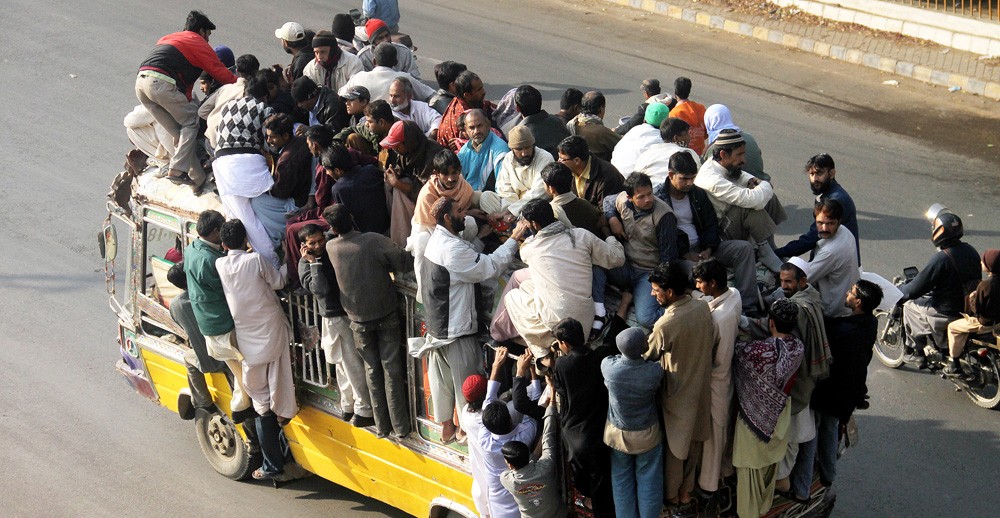
Population census is a pre-requisite for fresh planning, modification and implementation of development initiatives

MQM chief Altaf Hussain, on October 29, 2014, rightly stressed for conducting the census without delay. While his detractors may take it as a proposal for regaining political strength as a consequence of this exercise, it needs to be seen as a routine but important exercise for keeping cumulative information about the country accurate and dependable.
Earlier, during the Pakistan Urban Forum and First South Asian Cities Conference in Karachi on 12 January, technical justification of census was provided by experts in demography. It was found that census managers are willing and ready to revise arrangements to undertake the exercise whenever the government decides to conduct it.
Plentiful demurrals, fears and apprehensions are voiced by different political parties, community groups and vulnerable sections of the society during the recent past. The technocrats are strong supporters of this vital exercise and wish to keep it apolitical in nature to maintain its transparency and validity.
Certain vocal folks in Sindh have raised the concerns about potential under reporting of some locations due to logistics and accessibility reasons. Displacements due to past year floods, in-migrations for different causes to Sindh from elsewhere, horizontal movement of population and categorisation of housing typologies are also labelled as potential issues that shall have a bearing on census outputs.
Communities in Balochistan, that have suffered multiple predicaments, do not feel confident that headcount would be accurate and open for listing their actual existence. The minority communities have feared the incongruent recording of their existence, given the environment of intolerance prevailing in many parts of the country. Whereas every objection and concern is worth an impartial and objective investigation, few fundamentals may be established to streamline the progress of this vital assignment.
By its very nature, a census is a procedural exercise to be conducted in a neutral manner. It is initiated as the first step in establishing the social, demographic, economic and developmental status of the people and the contexts they inhabit. The information generated as a consequence of census has a bearing on the allocation of public resources, preparation of cases for dealing with extraordinary underdevelopment, updating of population listings in different constituencies, outlining development priorities, correcting and streamlining choice of projects/programmes, extrapolation of growth trends and many other attributes related to the communication ventures.
The census is also an exercise in impact assessment in respect to past public investments done in public health, education, social welfare and even physical infrastructure. The level of actual coverage and penetration of mass schemes such as immunization works is studied through the tabulation and analysis of census results. In other words, the delivery mechanisms worked out by the various government departments, projects implementation units and donor funded arrangements are examined for their effectiveness. The technical appropriateness and veracity of this exercise is a pre-requisite towards fresh planning, modification and implementation of such initiatives.
It is important to note that census can inform us about the scale, extent and nature of urbanisation that has happened in an exponential manner during the past two decades.
The definition of urban settlements and the parameters of urbanisation need to be re-visited to enable the policy makers recommend the right choices of resource allocations, development programmes and infrastructural preferences -- principally the energy consumption thresholds.
The understanding about trends in internal displacement, production links with settlements, locations experiencing disasters and consequent population shifts are also important matters that can be studied with precision based on census findings. The works of other institutions such as NADRA, Election Commission and Planning Commission will be greatly supported with the fresh body of information that shall be generated through a credible census exercise. The champions of electoral reforms must lend support to the early initiation of census.
Fears and concerns around census are of various types. Political parties, at various layers of their working and existence, fear the command and control of these exercises may impact their vote-bank. Ethnic groups -- and their overt and covert representatives -- are concerned about the manner in which concentration of population shall be recorded.
Parties and groups dealing with specific regions and peoples wish to see the results directly responsive to their aspirations. Proportional population weightage in provinces is another fear. As population factor is a vital variable in resource distribution through NFC award, census results and their validation shall become an extremely contentious issue. Technocrats and census management may do well to find technical solution to these political apprehensions.
The Constitution of Pakistan has laid down institutional arrangements to deliberate on these matters. Council of Common Interest may be convened to deliberate on this issue at the earliest possible instant. The government can come up with institutional arrangements to deal with the conduct of census in an objective manner.
At the procedural level, a complaint cell can be created in each taluka/tehsil/town to redress applications made by various stakeholders. An appropriate method can be devised to implement this approach in an effective manner. Monitoring mechanisms can be devised with consensus to enable various parties and groups oversee the process. And the input of research and development institutions can be taken on board for streamlining various problems including access, registration, and denial of information by various people as well as cross-verification. It must be remembered that soundness of this information generation exercise shall help the government plan and develop our country on sound footings.